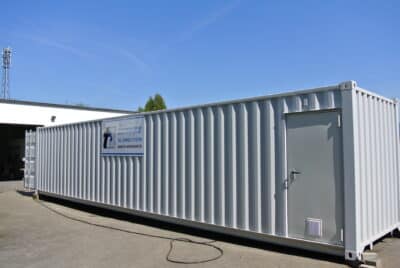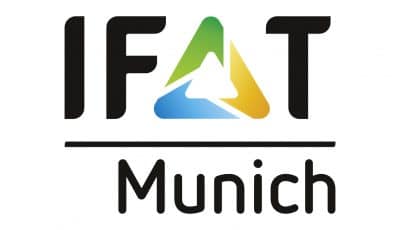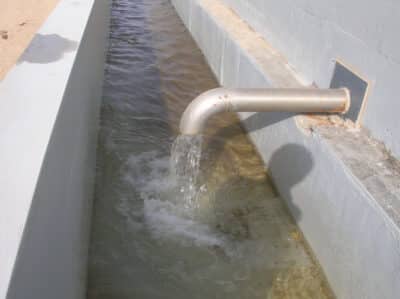AI supports and complements measurement technology in TIA industrial wastewater treatment plants.
Anna Lena Blanke describes TIA, the family business based in Breitenfelde
(close to Hamburg), which she runs together with her father and founder Dr.-
Ing. Norbert Müller-Blanke, as an "unconscious lateral entrant in the field of
AI".
Anna Lena Blanke describes TIA, the family business based in Breitenfelde (close to Hamburg), which she runs together with her father and founder Dr.- Ing. Norbert Müller-Blanke, as an "unconscious lateral entrant in the field of AI".
"AI has been present in the control of our wastewater treatment plants for quite some time, without it always being called AI,"" says Anna Lena Blanke. Since 1987, TIA Technologien zur Industrie-Abwasser-Behandlung GmbH has been developing and building modularly designed industrial wastewater treatment plants adapted to the specific needs for pretreatment and full treatment of wastewater up to reuse.
"Particularly in the field of AI, we see potential for the future and process engineering perspectives of AI that we want to use for development projects - even if we have to approach some questions first," says Anna Lena Blanke. The AI Transfer Hub SH has made people curious about what can be done. In a joint use case workshop with the AI experts, the aim was to identify challenges within the company, collect approaches to solutions and create a fundamental understanding of AI, its capabilities and the data required. "The exchange with the AI Transfer Hub SH was like a kind of eye opener that we are actually already in the middle of the topic." As a plant manufacturer, the technical focus is set anyway, the latest state of the art is a matter of course.
In order to produce future-oriented, energy-efficient and economical industrial plants that exactly meet the customer's requirements, TIA uses chemical, physical and biological wastewater treatment processes. Industrial wastewater treatment plants with capacities ranging from 30 m³ to 7,500 m³ per day have already been built in a wide variety of industries. These are offered in three proven systems, the TIA Compact System, the TIA Module System and the TIA Container System. Each system has a controller that records the wastewater treatment data and triggers control mechanisms for what cleaning is required. This means that the system must be programmed to react "autonomously" if, for example, a limit value has been exceeded or some other unexpected incident occurs.
"An example would be a dead bird falling into the basin," says Anna Lena Blanke. "In principle, I can tell the plant in advance what should happen then. But this also reveals the limits of the technology used: because at the moment we are still the ones who have to specify each individual case." Ultimately, it is always about data. "We feed the system with ordered data so that the AI can access it. To do this, we have to make an effort to expand our internal databases and create the conditions, so to speak, so that the AI can work even better."





